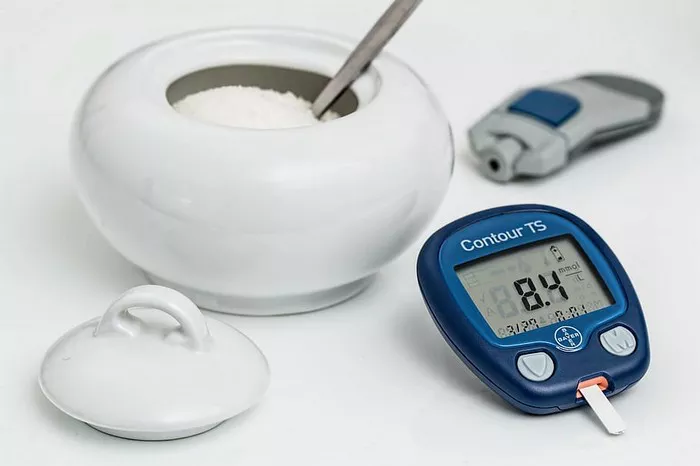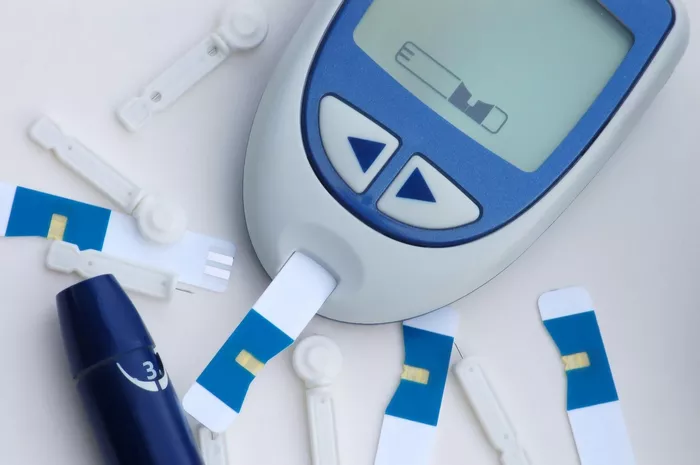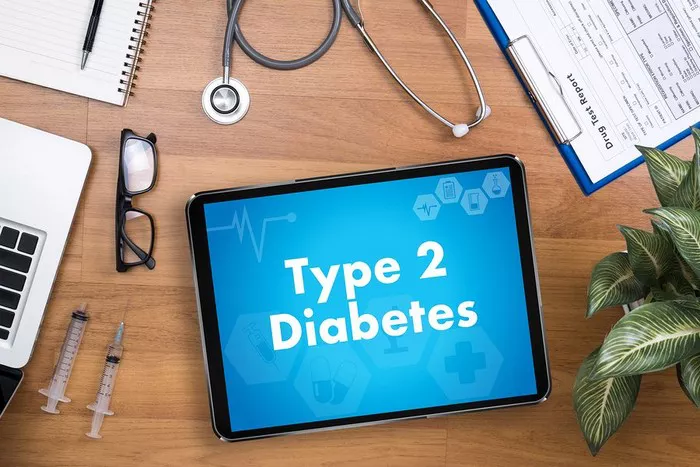Blood sugar, also known as glucose, is a crucial component of the body’s overall health. It serves as the primary source of energy for cells and tissues, providing fuel for essential bodily functions. However, maintaining balanced blood sugar levels is essential for optimal health, particularly for individuals with diabetes. In this article, we will explore the role of blood sugar in the body, the importance of monitoring for individuals with diabetes, factors influencing blood sugar fluctuations, potential complications of poor management, benefits of regular monitoring, guidelines for monitoring, interpreting results, the impact of lifestyle choices, technological advances in monitoring technology, and available resources and support for managing blood sugar levels.
Understanding Blood Sugar
Blood sugar refers to the concentration of glucose in the bloodstream. Glucose is derived from the foods we eat, particularly carbohydrates, which are broken down during digestion and absorbed into the bloodstream. Once in the bloodstream, glucose is transported to cells throughout the body, where it is used as a source of energy. However, to enter cells and be utilized for energy, glucose requires the hormone insulin, which is produced by the pancreas.
Importance for Diabetics
For individuals with type 1 or type 2 diabetes, the body’s ability to regulate blood sugar levels is impaired. In type 1 diabetes, the immune system mistakenly attacks and destroys the insulin-producing cells in the pancreas, leading to a deficiency of insulin. In type 2 diabetes, the body becomes resistant to the effects of insulin, or the pancreas fails to produce enough insulin to meet the body’s needs. As a result, individuals with diabetes must monitor their blood sugar levels closely and take steps to regulate them effectively.
Blood Sugar Fluctuations
Blood sugar levels can fluctuate throughout the day in response to various factors, including:
Diet: Consuming foods high in carbohydrates can cause blood sugar levels to rise, while eating foods rich in protein and fiber can help stabilize blood sugar.
Exercise: Physical activity can lower blood sugar levels by increasing the body’s sensitivity to insulin and promoting glucose uptake by muscles.
Medications: Certain medications, such as insulin and oral diabetes medications, can affect blood sugar levels and may need to be adjusted accordingly.
Stress: Stress hormones can cause blood sugar levels to rise, as the body prepares for a “fight or flight” response.
Illness: Infections or other illnesses can lead to temporary increases in blood sugar levels as the body responds to inflammation and infection.
Complications of Poor Management:
Failure to monitor and regulate blood sugar levels effectively can lead to a range of health complications, including:
Hypoglycemia: Low blood sugar levels can cause symptoms such as dizziness, confusion, and fainting and, if left untreated, can lead to seizures or coma.
Hyperglycemia: High blood sugar levels can cause symptoms such as increased thirst, frequent urination, and fatigue and, if left untreated, can lead to serious complications such as diabetic ketoacidosis (DKA) or hyperosmolar hyperglycemic state (HHS).
Long-term complications: Chronic hyperglycemia can damage blood vessels and organs over time, increasing the risk of complications such as heart disease, stroke, kidney disease, nerve damage, and vision problems.
Benefits of Regular Monitoring
Regular monitoring of blood sugar levels is essential for managing diabetes and preventing complications. By keeping track of blood sugar levels throughout the day, individuals can:
Identify patterns and trends in blood sugar fluctuations.
Make informed decisions about diet, exercise, and medication.
Prevent episodes of hypoglycemia or hyperglycemia.
Reduce the risk of long-term complications associated with uncontrolled diabetes.
Guidelines for Monitoring
The frequency and timing of blood sugar checks may vary depending on individual factors such as the type of diabetes, treatment regimen, and overall health status. However, general guidelines for monitoring blood sugar levels include:
Type 1 diabetes: Individuals with type 1 diabetes may need to check their blood sugar levels multiple times per day, including before meals, before bedtime, and during periods of physical activity or illness.
Type 2 diabetes: Individuals with type 2 diabetes may need to check their blood sugar levels regularly, as recommended by their healthcare provider. This may include fasting blood sugar checks in the morning, postprandial checks after meals, and periodic checks throughout the day.
Interpreting Results
Interpreting blood sugar readings involves understanding what the numbers mean for one’s health and taking appropriate action based on the results. Blood sugar readings are typically expressed in milligrams per deciliter (mg/dL) or millimoles per liter (mmol/L). Target blood sugar ranges may vary depending on individual factors and treatment goals but generally include:
Fasting blood sugar: Typically, target ranges for fasting blood sugar levels are between 80 to 130 mg/dL (4.4 to 7.2 mmol/L) for individuals with diabetes.
Postprandial blood sugar: Target ranges for postprandial blood sugar levels (1 to 2 hours after meals) may be between 80 to 180 mg/dL (4.4 to 10 mmol/L) for individuals with diabetes.
It’s essential for individuals to work closely with their healthcare provider to establish personalized target ranges and develop a plan for managing blood sugar levels effectively.
Impact of Lifestyle Choices
Diet, exercise, and medication play a significant role in managing blood sugar levels for individuals with diabetes:
Diet: Following a balanced diet that includes a variety of nutrient-rich foods, with an emphasis on fruits, vegetables, whole grains, lean proteins, and healthy fats, can help regulate blood sugar levels and promote overall health.
Exercise: Engaging in regular physical activity, such as walking, jogging, cycling, or swimming, can help lower blood sugar levels by increasing insulin sensitivity and promoting glucose uptake by muscles.
Medication: Taking medications as prescribed by a healthcare provider, such as insulin or oral diabetes medications, can help regulate blood sugar levels and prevent complications associated with diabetes.
Technological Advances
Recent advancements in monitoring technology have revolutionized the way individuals with diabetes manage their blood sugar levels:
Continuous glucose monitors (CGMs): CGMs are wearable devices that continuously monitor glucose levels throughout the day and night, providing real-time data and alerts for high or low blood sugar levels. CGMs can help individuals track trends and patterns in blood sugar fluctuations and make informed decisions about diet, exercise, and medication.
Insulin pumps: Insulin pumps are small, wearable devices that deliver insulin continuously throughout the day, mimicking the function of a healthy pancreas. Insulin pumps can help individuals with type 1 diabetes achieve more precise control over their blood sugar levels and reduce the risk of complications associated with insulin therapy.
Smartphone apps: Smartphone apps are available that allow individuals to track their blood sugar levels, monitor trends and patterns, and share data with healthcare providers. Some apps also offer features such as medication reminders, carbohydrate counting, and personalized insights to support diabetes management.
Resources and Support:
Managing blood sugar levels can be challenging, but there are resources and support available to help individuals navigate their diabetes journey:
Healthcare providers: Healthcare providers, including primary care physicians, endocrinologists, and diabetes educators, can provide guidance on managing blood sugar levels, developing a personalized treatment plan, and addressing any concerns or questions.
Diabetes organizations: Organizations such as the American Diabetes Association (ADA), Diabetes UK, and JDRF offer a wealth of resources, including educational materials, online support communities, and advocacy efforts to raise awareness about diabetes and support individuals affected by the condition.
Support groups: Joining a diabetes support group, either in person or online, can provide a sense of community, encouragement, and practical tips for managing blood sugar levels and coping with the challenges of living with diabetes.
Conclusion
In conclusion, understanding blood sugar and its role in the body’s overall health is essential for individuals with diabetes. By monitoring blood sugar levels regularly, making healthy lifestyle choices, and leveraging technological advancements in monitoring technology, individuals can effectively manage their blood sugar levels and reduce the risk of complications associated with diabetes. With the support of healthcare providers, diabetes organizations, and peer support networks, individuals can navigate their diabetes journey with confidence and achieve better health outcomes.
Related Topics:
What Do High Blood Sugar Levels Mean?



























